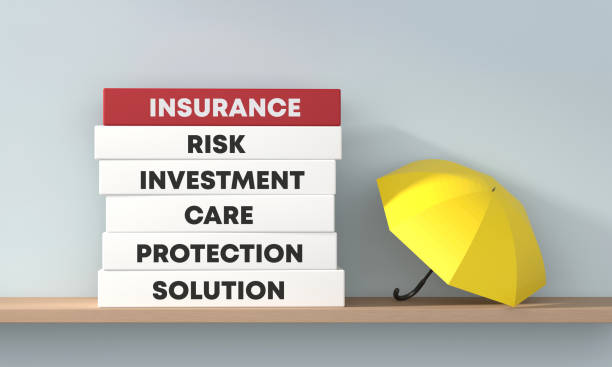
In 2025, financial planning is no longer just about building wealth—it’s about securing it. One of the most overlooked yet crucial aspects of any sound financial strategy is insurance. Many ask, “Why is insurance an important part of a financial plan in 2025?” The answer lies in the uncertain world we live in, where economic volatility, rising healthcare costs, and global risks are constant reminders that life can change in an instant. Insurance serves as a financial safety net, offering protection and stability when unforeseen events threaten to derail your goals.
Understanding the Role of Insurance in Financial Planning
To understand what is insurance planning, think of it as a shield that defends the foundation of your financial well-being. Insurance allows individuals and families to transfer financial risk to a third party—typically an insurance company—in exchange for a manageable premium. This arrangement ensures that when emergencies happen, you don’t have to tap into your savings or derail your investment plans to recover.
When planning financially, the primary objective is to reach personal goals: homeownership, education, retirement, or starting a business. But all these goals are vulnerable to life events beyond our control. Without insurance, even a single accident or illness could mean years of lost progress. Hence, insurance is not a luxury; it’s a fundamental pillar that supports every other financial objective.
In 2025, financial literacy is more widespread, but many still underestimate the power of a well-rounded insurance strategy. Whether it’s term life, health, disability, or even long-term care insurance, each product plays a distinct role in maintaining financial equilibrium.
![]()
Top Reasons Why Insurance Is an Important Part of a Financial Plan
Still wondering why is insurance an important part of a financial plan? Give it a closer look with these compelling reasons:
Income Replacement: If you’re the primary earner in your household, life or disability insurance can ensure your family’s standard of living is preserved even if something happens to you.
Debt Protection: In the event of your passing, outstanding debts like mortgages, car loans, or credit card balances won’t become a burden for your loved ones.
Medical Emergency Buffer: Health insurance protects you from skyrocketing medical bills, ensuring your savings remain intact for their intended use.
Peace of Mind: Knowing you have the right coverage reduces stress and allows you to focus on growth, not fear.
Wealth Preservation: Insurance ensures your estate planning goals are met, avoiding costly taxes or financial struggles for your heirs.
Business Continuity: If you’re an entrepreneur, business insurance protects assets, employees, and continuity in times of crisis.
As we enter a new era of economic challenges and opportunities, insurance provides the confidence needed to take calculated financial risks without jeopardizing long-term goals.

Types of Insurance to Include in Your Financial Plan in 2025
The world has evolved, and so have the types of insurance products available. In 2025, here are the essential types of insurance to include in your financial plan:
Life Insurance: Whether term or whole life, this protects your dependents from financial hardship if you pass away. It can also serve as a tool for wealth transfer.
Health Insurance: With unpredictable healthcare costs, having a comprehensive health plan is more critical than ever.
Disability Insurance: An injury or illness could sideline your ability to earn an income. Disability insurance bridges that financial gap.
Homeowners or Renters Insurance: Protects the structure of your home and your possessions against damage, theft, and natural disasters.
Auto Insurance: Ensures you’re financially protected against accidents, damage, or liability on the road.
Long-Term Care Insurance: As people live longer, the risk of needing extended care increases. This insurance covers expenses related to nursing homes, assisted living, or in-home care.
Critical Illness Insurance: Provides a lump-sum payment if diagnosed with serious illnesses like cancer, stroke, or heart disease.
Including a combination of these in your financial plan gives you a well-rounded strategy to meet life’s uncertainties head-on.

Benefits of Insurance in Your Financial Plan
So what makes insurance stand out in a world full of financial instruments? Here are the top benefits:
Risk Mitigation: Insurance lets you transfer substantial financial risks to companies that are built to absorb them.
Financial Stability: Even if disaster strikes, insurance helps ensure that you can maintain your current lifestyle.
Liquidity Creation: Life insurance can create instant liquidity, which is useful for paying estate taxes or managing debt.
Future Planning: Permanent life policies accumulate cash value over time, which can be borrowed against or used in emergencies.
Tax Advantages: Many policies come with tax-deferred growth and benefits that are exempt from income tax.
Estate Planning: Insurance can be used to equalize inheritances, fund trusts, and ensure your wishes are carried out without burdening your heirs.
By offering all these advantages, insurance transforms from a “just-in-case” solution to a core component of modern financial planning.
Common Financial Mistakes: Ignoring Insurance
Despite its many benefits, insurance is often ignored, especially by younger individuals or those just starting their financial journey. Here are some costly mistakes:
Delaying Insurance: Waiting until you “need” it often results in higher premiums or denial due to health changes.
Underinsuring: Many people buy the cheapest policy without ensuring it covers actual needs.
Not Updating Policies: As life changes, so should your coverage. Marriage, children, homeownership, or starting a business all call for reevaluation.
Skipping Health or Disability Insurance: These are often overlooked until it’s too late, leaving families in financial disarray.
Ignoring insurance isn’t just a missed opportunity—it can be a critical vulnerability in your financial armor.

Conclusion: Secure Your Financial Future with Smart Insurance Planning
As we face a complex financial future in 2025, it’s vital to approach planning with both offense and defense. Insurance is that defense. It doesn’t just protect what you’ve built—it ensures you’re able to keep building, no matter what happens.
So if you’ve been asking yourself, “Why is insurance an important part of a financial plan?” or “What is insurance planning all about?”, the answer is simple: it’s the cornerstone of a resilient, future-proof financial strategy.
If you’re exploring ways to strengthen your financial future, Dwanderful offers more than just insight—it offers action. Dwan Bent-Twyford, a seasoned real estate investor and podcast host, provides tools and resources for those looking to build wealth through property.
Visitors can grab a FREE copy of her book “Real Estate Lingo,” which breaks down complicated terms into easy-to-understand concepts. For those wanting a deeper dive, her paid book, “Five Pillars of Real Estate Investing,” offers a blueprint for creating lasting wealth through real estate.
Want a fun and fast way to find out how close you are to hitting six figures? Don’t miss the interactive quiz game on Dwanderful’s website. It helps you discover how you could generate six figures in the next six months whether you’re buying your first property or your next. It only takes a minute! Contact us now!
Frequently Asked Questions:
How much insurance coverage do I really need?
Your coverage needs depend on your income, financial obligations, lifestyle, and dependents. A common rule is to have life insurance worth 10 to 15 times your annual income, but professional financial guidance is best for accuracy.
Is life insurance still necessary if I already have savings and investments?
Yes. While savings and investments are valuable, they may not provide immediate or sufficient financial support in emergencies. Life insurance offers guaranteed protection and ensures your loved ones won’t need to dip into those assets to stay afloat.
Can I update my insurance plan as my financial situation changes?
Absolutely. Your insurance plan should be flexible and evolve as your life changes—whether that’s marriage, parenthood, a new job, or property acquisition. Regular reviews ensure you’re never under- or over-insured.
In a world full of uncertainties, insurance is the one element in financial planning that promises certainty when you need it most. Make 2025 the year you fortify your financial future with smart insurance decisions.


